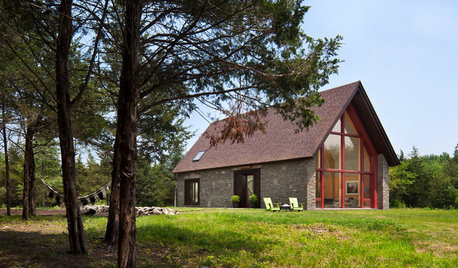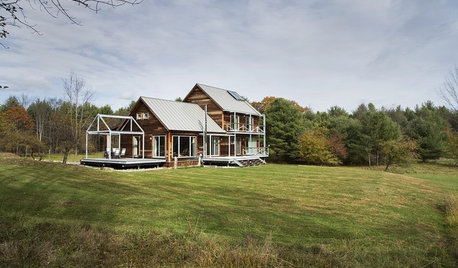What are the requirements to become (and stay) certified as a MG?
The answer to this question varies by state and, perhaps, county. Following is information from the states of South Carolina, Pennsylvania, Maine, Ontario, and West Virginia. The requirements in you state will be similar to those represented here.
We are reading, in this forum, that some states are requiring "background checks", "fingerprints", and what-have-you as part of the qualification process. You should read elsewhere in this forum for such information; it is not covered here, in this FAQ section.
PLEASE NOTE: This information is current as of the date of posting, and is not warranted or guaranteed to be valid beyond such date. For the most current information in your state of residence, you should contact the "county extension office". Space limitations preclude posting of the programs for all states.
**********************************************************
SOUTH CAROLINA:
This volunteer training program is administered by the Clemson University Cooperative Extension Service. Introduced in Charleston County in 1981, the Master Gardener program is now offered in 36 counties.
The Master Gardener program is divided into two parts: instruction and service. In the first part, participants receive at least 40 hours of intensive, practical horticultural training. A few of the following topics are covered in the program:
*Soils and Plant Nutrition
*Basic Plant Pathology, Physiology, and Entomology
*Vegetable Gardening
*Tree and Small Fruit Culture
*Culture of Woody Ornamentals
*Lawn Management
*Basic Landscape Design
*Problem Solving
After successfully completing the classroom portion, which involves regular attendance and passing a final exam, participants receive the title of "Master Gardener." The Master Gardener graduates then donate at least 40 hours of service to complete the last part of the program.
What is Expected of Master Gardeners?
After completing the course, Master Gardeners are required to volunteer at least 40 hours of service in the Clemson Extension office or in the community. The volunteer activities are coordinated through the local county Extension office.
Master Gardeners share their knowledge and skills in a number of ways: answering horticulture calls at the Extension office; speaking to garden and civic clubs; working with youth or senior groups; and assisting communities with beautification projects.
Many Master Gardeners far exceed the expected 40 hours of service. Many continue in the program beyond the first year, motivated by their willingness to help others and the personal satisfaction derived from participating in this community service program.
***********************************************************
PENNSYLVANIA:
POLICY STATEMENT
PURPOSE:
Master Gardeners are volunteers who support Penn State Cooperative Extension's educational programs in consumer horticulture. They develop their horticultural expertise through participation in educational programs conducted by Penn State University faculty and cooperative extension staff. Faculty and extension staff also provide diagnostic support for horticultural issues and questions to those Master Gardener volunteers participating actively in the program. Extension publications, teaching materials, and/or other program support materials are provided as deemed appropriate by faculty and county extension staff responsible for leading and supervising the Master Gardener program. Information presented by Master Gardeners must be consistent with Penn State Cooperative Extension recommendations concerning various aspects of consumer horticulture.
QUALIFICATIONS:
1. Strong interest and knowledge in horticulture as evidenced by scoring a minimum of 80% on a final exam administered by Penn State Cooperative Extension.
2. Willingness and availability to undertake extensive training in consumer horticulture practices. Trainees may not miss more that one training session.
3. Dedication and willingness to provide a minimum of fifty (50) hours of volunteer service for Penn State Cooperative Extension. Master Gardeners have one (1) year from the end of training to complete the volunteer requirement.
4. Ability to communicate effectively and diplomatically with others either by telephone, personal contact, group contact, and/or in writing.
5. Willingness to support Penn State Cooperative Extension staff in providing extension audiences with up-to-date consumer horticulture information.
EXPECTED COMMITMENT:
1. Attend required training sessions.
2. Perform the required number of volunteer hours for Penn State Cooperative Extension.
3. Maintain an activity log and submit it to the county extension office on a monthly and/or quarterly basis, as required by county operating procedures.
4. Attend meetings as scheduled to update information, discuss gardening problems and coordinate Master Gardener activities.
5. Participate in cooperative extension activities as needs arise.
6. Provide own transportation.
7. Maintain a flexible schedule which permits day and/or evening and/or weekend activities.
TRAINING:
County Master Gardener Programs will offer core and elective training totaling a minimum of thirty (30) hours.
CORE CLASSES (required in all counties): 20 hours
Orientation to MG Program Plant Propagation
Communication Skills Entomology
Plant Science Plant Pathology
Soil Science IPM & Pesticide Safety
SUGGESTED ELECTIVE CLASSES (varies by county): 10 hours minimum
Turfgrass Culture Indoor Plant Culture
Herbaceous Ornamental Plant Culture Vegetable Culture
Woody Ornamental Plant Culture Diagnosing Plant Problems
Pruning Horticulture Tours/Workshops
Tree & Small Fruit Culture Office Orientation
CERTIFICATION:
A Penn State Master Gardener must attend the prescribed hours of instruction, pass the final examination and fulfill the 50-hour volunteer commitment before becoming a certified Master Gardener. Upon completion he/she will be awarded a Penn State Master Gardener certificate. This certification is restrictive in nature in that it is valid only when the individual is participating in the Penn State Master Gardener Program and for one year only. Recertification will be issued each year only to those individuals who make a commitment for participation in the program for the coming year as outlined below. When individuals cease active participation, then their designation as Penn State Master Gardener becomes void. Those not continuing in the program should be aware that if they represent themselves as Master Gardeners, they are violating their original commitment to Penn State Cooperative Extension.
RECERTIFICATION: A Master Gardener may recertify for participation in the program for another year by:
1) committing to a minimum of twenty (20) hours of volunteer work to be completed each year, and
2) completing or having completed eight (8) additional hours of horticulture training each year.
Examples of additional training are : New Master Gardener training, Master Gardener Advanced Training, State/Regional/National MG conferences, University or Community College courses, Arboretum and Botanical Garden seminars, annual horticulture conferences, and Pennsylvania Federation of Garden Club courses. The training must be approved as acceptable by the county extension agent responsible for supervising the Master Gardener program.
INACTIVE STATUS:
An inactive Master Gardener is one who is unable to commit to an additional 20 hours service plus 8 hours training at present, but would like the opportunity to recertify themselves in the future. The following policies apply:
1) An inactive Master Gardener is one who is in good standing, having completed the original commitment of training, exam, and volunteer service.
2) The inactive Master Gardener must attend or have attended eight (8) hours of acceptable horticulture training for each year of inactive status. (See Recertification #2 for examples of training).
3) An inactive Master Gardener may recertify within three (3) years as long as the above criteria are met. Individuals on inactive status for more than three years are required to retake the New Master Gardener training.
OUT-OF-STATE:
Master Gardeners who are certified in another state may be admitted to a Penn State Master Gardener program by meeting the following criteria:
1) acquire or be provided with a current Penn State Master Gardener training manual.
2) acquire or be provided with a Penn State Master Gardener name badge.
3) score a minimum of 80% on a final exam administered by Penn State Cooperative Extension.
4) meet the Recertification requirements listed above.
FEES:
To cover the cost of training manuals and supplies, a non-refundable standardized fee determined by the State Coordinator will be charged. Upon an individual's acceptance into the program, this fee will be paid at the county level by the county extension office or the Master Gardener volunteer as per county policy.
LIABILITY:
Master Gardener Volunteers are insured under the P.W. Woods & Son, Inc. liability insurance program. Coverage applies only to individual volunteers while they are performing their volunteer activities for Penn State Cooperative Extension. The coverage does not extend to other organizations or groups that volunteers are working with. Volunteers may not sign contracts or leases assuming liability responsibility on behalf of other organizations or groups. All contracts or "facilities use" agreements that require volunteer signature must be reviewed by the Wood office prior to signing.
County offices are asked each year to identify the number of volunteers to be covered and the appropriate premium charge is applied. If volunteers are not reported, there is no liability coverage.
GUIDELINES:
The title "Penn State Master Gardener" is to be used only and exclusively by individuals trained and certified to assist Penn State Cooperative Extension, and the title is valid only when the volunteer is participating in the Penn State Master Gardener Program. The title Master Gardener is to be used only when doing unpaid, volunteer work in a program activity approved by an extension agent.
Master Gardeners are not to advertise their name or their place of business nor be listed on the advertisements of business places as Penn State Master Gardeners. Because the Master Gardener Program is a Penn State Cooperative Extension public service program providing unbiased research-based information appearing as a commercial activity, having association with commercial products, or implying Penn State Cooperative Extension endorsement of any product or place of business is improper and grounds for dismissal from the program.
The training and experience gained by participating in the Penn State Master Gardener Program are valuable, and may rightfully be listed as qualifications when seeking employment. Once employed and while serving as a paid employee, or if self-employed, Master Gardeners should not display credentials or give the appearance of being a Master Gardener at the place of business, unless the place of business is specifically designated by an extension agent as a Master Gardener clinic location.
When Master Gardeners speak before groups on horticulture topics it is permissible for them to accept unsolicited reimbursements or gifts. It is inappropriate, however, to seek paid speaking engagements while participating in an authorized extension function and while using the Master Gardener title. In all cases the county extension office policy on speaking engagement fees should be honored. When a Master Gardener travels out of county for a speaking engagement, it is appropriate to request payment for travel expenses from the county cooperative extension office or other organization requesting the Master Gardener 's services.
When making recommendations which include the use of fertilizers and pesticides, Master Gardeners must follow current cooperative extension recommendations. Horticultural problems which are not specifically covered by extension recommendations should be referred to an extension agent. Questions concerning commercial production of crops and pest control on such crops should be referred to an extension agent.
***********************************************************
MAINE:
Maine's Master Gardener Program provides participants with at least 40 hours of in-depth training in the art and science of horticulture. Trainees receive current, research based information from Extension educators and industry experts.
In return, trained Master Gardeners volunteer their time and expertise in many ways for community programs and activities.
As part of a nationwide Cooperative Extension effort, Master Gardeners are recognized as well-trained practitioners who serve and beautify their communities. They are linked to a professional network of support through county, state and national Cooperative Extension offices.
What Volunteer Projects Do Master Gardeners Do?
A major statewide effort of the Master Gardener Program is the Plant A Row for the Hungry program. This is a "people helping people" program to assist in feeding the homeless and hungry in your own community. Through various projects, gardeners will grow a little extra and donate the produce to local soup kitchens and food banks that serve the homeless and hungry.
Other projects Master Gardeners might do include:
- - teach school children about the environment and develop school gardening projects
- - design and build barrier-free gardens for persons with disabilities
- - develop demonstration gardens to test different plant varieties
- - plan and conduct educational workshops
Who Can Become A Master Gardener?
Everyone who successfully completes the forty-plus hours of training, and volunteers forty hours towards community gardening programs and activities can become a Master Gardener. The participation fee is $60 which covers the cost of the two-volume reference manual and the training site expenses.
Master Gardeners are
Lifelong Learners
Master Gardeners can help direct their own advanced training. Here are examples of how Maine Master Gardeners have helped each other learn more:
In several Maine counties, Master Gardeners have created demonstration gardens, which are excellent places to teach other gardeners at field days, workshops and tours. They also provide places where Master Gardeners can experiment with new techniques, grow unusual crops, design theme gardens and hone their gardening skills.
Master Gardeners in many Maine counties meet regularly to plan update activities such as guest lecturers, workshops, and tours of gardens or horticultural businesses.
***********************************************************
ONTARIO:
Volunteer Job Description
Title: Master Gardener In Training or Master Gardener
Working Schedule: In consultation with local coordinating committee.
Description of Job To provide reliable and accurate information to the area public, via telephone, office or letter inquiries and by use of displays, classes and workshops on some of the following subject matters: home fruit and vegetable production, including planting, fertilizing, cultivation and pest management planting and care of trees, shrubs and lawns disease and small animal control as they affect home grounds and garden.
The volunteer will record hours worked, questions asked and answers provided. Other duties may be assigned by Master Gardener Coordinating committee and/or the local Coordinator.
Supervision: Immediate supervision will be by the Master Gardener
Coordinating Committee and/or the coordinator of that area.
Required Skills, Experience and Abilities
The applicant must: have a good basic knowledge and interest in ornamental horticulture and general home gardening.
successfully complete an eligibility test, the Independent
Study Courses and attend training sessions and seminars.
be willing to commit time to the Master Gardener
activities (minimum 20 advice hours and 10 non-advice
hours per year of participation) be able to work without constant supervision be able to work with the public and be eager to serve.
Proper Representation:
The title "Master Gardener" is to be used in all dealings with the public during periods of volunteer work authorized by the coordinating committee. However, if the volunteer is not on the job as a Master Gardener, then he/she should not use the term Master Gardener to signify authority.
No responsibility will be taken for advice given during times unauthorized by the coordinating committee.
All advice given by Master Gardener Volunteers when working under the authorization of the coordinating committee must be in accordance with present Master Gardeners of Ontario Inc. guidelines and present OMAFRA publication ( eg. Publication 64). Recommendations are to be based on unbiased information.
Implied endorsement of any product or place of business is improper.
At no time should the Master Gardener volunteer try to reply to problems of a commercial producer. These questions should be referred to an OMAFRA specialist.
Volunteer Commitment
Volunteer Hours Each volunteer is required to contribute a minimum of thirty (30) hours of service each year.
Twenty (20) of these hours are to be direct contact with the public: giving advice on a one to one basis, lecturing to a group, writing articles for publication or the production of new fact sheets, and filling specific requests made to the Master Gardener group.
Ten (10) administrative hours must be contributed by: attending local group meetings, serving on Provincial Master Gardener Committees or attending Provincial Master Gardener meetings, administrative time and time spent preparing for lectures or clinics.
Responsibilities.. Master Gardeners and Master Gardeners in Training have maintained high levels of knowledge and are known for reliable information. It is very important that the Master Gardeners of Ontario Inc. maintain these high standards.
Master Gardeners are required to give balanced, non judgmental advice that has been in compliance with the recommendations set out by the Ontario Ministry of Agriculture, Food and Rural Affairs.
Master Gardeners will not imply the endorsement of any product or place of business in their recommendations.
Acceptable Activities Advice for Volunteer Hours Master Gardener duties are determined by the volunteer and the local coordinating committee. Activities must be information- oriented rather than physical labour and should reflect the needs of the community.
Some acceptable activities are:
garden clinics/demonstrations
provide horticultural information to hospitals, nursing homes,YMCA, therapy programs
writing - newspaper, handouts etc.
classes/workshops,
distribution of a speaker list to organizations, schools , OMAFRA etc.
**********************************************************
WEST VIRGINIA:
The West Virginia Master Gardener Program started in 1993. Under the leadership of John Jett, WVU Extension Service horticulture specialist, Master Gardeners are now active in 35 of West Virginia's 55 counties. There are 1,048 active Master Gardeners in WV. These volunteers are trained in classes and activities provided by the West Virginia University Extension Service and Extension Agents in these counties.
Master Gardeners receive a minimum of 30 hours of instruction. Along with an orientation, volunteers are given core training in plant science, plant propagation, soil science, plant pathology, entomology, communication skills, and integrated pest management. These subjects give the Master Gardener trainee the basic horticultural knowledge necessary to assist extension staff effectively. Specific gardening topics like pruning techniques, composting, house plants, vegetable culture, herbs, tree and small fruit culture, lawns and landscape design allow the Master Gardener to specialize in an area of particular personal interest.
After successfully completing the Master Gardener training program, each volunteer receives a Master Gardener Intern certificate.To fulfill their volunteer commitment, West Virginia Master Gardener Interns:
-- answer gardening questions
-- assist county extension office staff
-- conduct garden tours
-- conduct school gardening programs
-- coordinate Master Gardener programs
-- create and maintain community and school landscapes
-- conduct plant clinics
-- garden with the elderly and disabled
-- make home gardening visits
-- photograph Master Gardener activities
-- plan and complete community beautification projects
-- present lectures or demonstrations to groups interested in horticulture
-- staff county and state exhibits
-- work on special events
After an intern has satisfactorily completed the formal training and 30 hour of volunteer service, he or she then receives an official Master Gardener certificate and name badge.To maintain the title of Certified Master Gardener, a volunteer is required to attend a minimum of six hours of update (advanced) training per year and serve a minimum of six hours' volunteer time per year. The Master Gardener designation becomes void when an individual ceases active participation in an organized program. Many county programs have established local associations that provide leadership and sustain Master Gardener programs and activities.
The West Virginia Master Gardener Association (WVMGA) was incorporated in 2000 and the board of directors is comprised by representatives from many of the county programs.The state board meets quarterly to address statewide program issues and is responsible for organizing the annual conference.The location of the annual conference varies from year to year with an effort to accommodate Master Gardeners around the state.The conferences are attended by 150 to 200 Master Gardeners who can participate in several advance training workshops and learn about successful county projects.Awards are presented to individuals and groups from throughout the state for their Master Gardener activities and recognition is given to several county Master Gardeners and a State Master Gardener of the Year. Following the awards banquet, there are both a live and a silent auction of items donated by individual Master Gardeners and county groups.Proceeds from the auctions are deposited in an endowed account with the WVU Foundation. The West Virginia Master Gardeners and WVU Extension Service presented their first $1,000 scholarship to a WVU horticulture student in the spring of 2003.
In 2001, the West Virginia Master Gardeners received the Governor's Service Award and WVU Extension's Outstanding Partner Award. In 2002 the program trained approximately 450 clients and certified close to 250 Master Gardener volunteers. Master Gardeners across the state volunteered 20,000 hours to their communities and contacted 5,800 clients.
The West Virginia Master Gardener Association celebrated their tenth year at the annual conference at Holiday Inn in Oak Hill April 4-6, 2003 with 175 participants. John Jett, state Master Gardener coordinator and the conference planning committee organized the conference with interesting sessions on rock and water gardening, photography, horticulture therapy, entomology, container gardening, pruning. At the Saturday evening banquet, Outstanding Master Gardeners from 15 counties were recognized.Volunteer Service awards were presented to Master Gardeners from 5 counties and the Vegetable Variety Trial participants were recognized. The silent and live auctions raised over $2500 for the scholarship fund.The Sunday featured speaker was Anita Stone, a Master Gardener from Kentucky who delivered an entertaining and sometimes emotional message on reminiscence and horticulture therapy for the elderly.
***********************************************************













Related Discussions
Certified Organic Produce/Eggs
Q
M/G Attrition- Why Do they Drop Out?
Q
What's the best thing about your MG program?
Q
Certified Naturally Grown (CNG)
Q